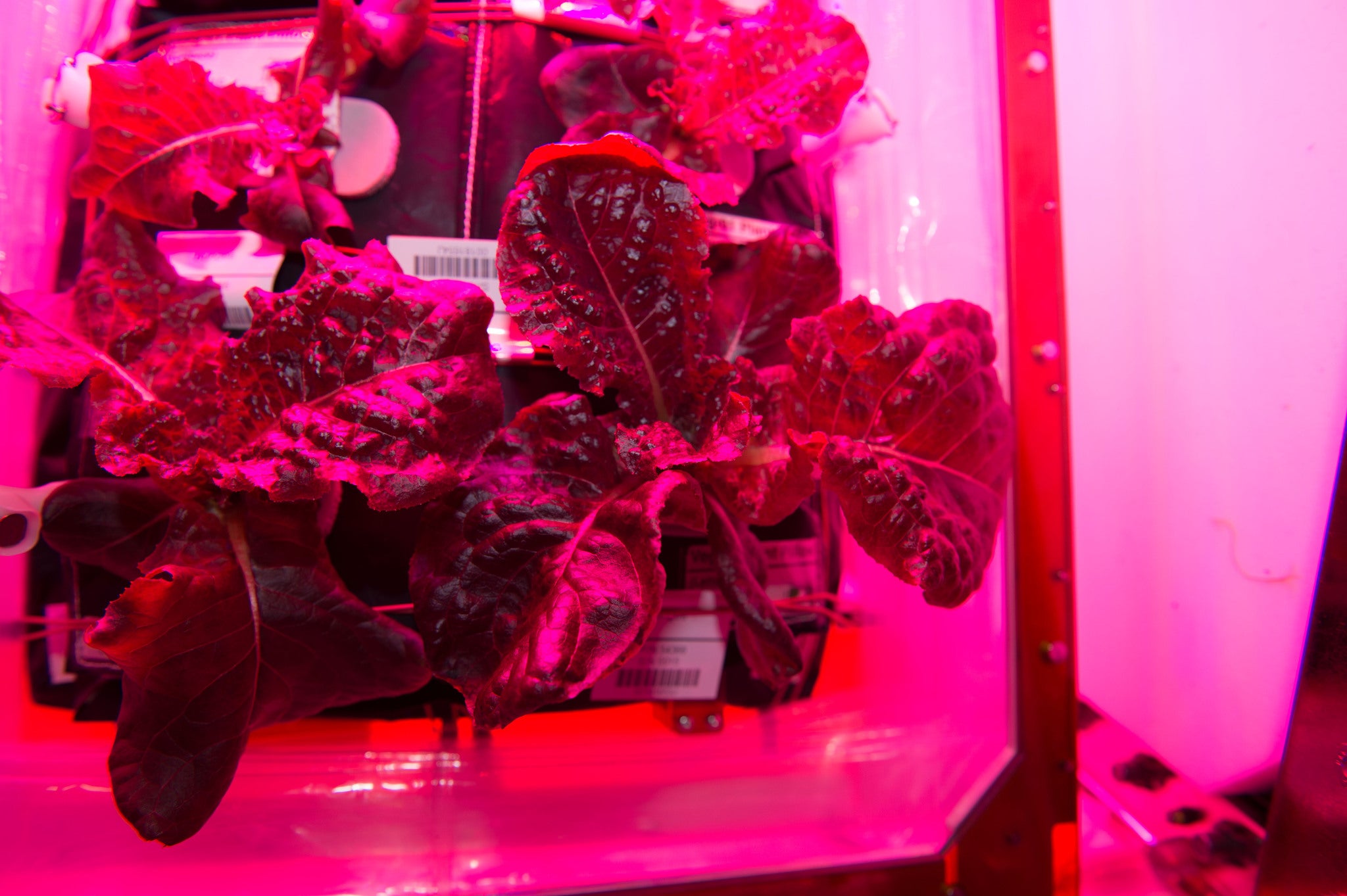Nasa veggie: food grown in space has been eaten for the first time ever, tastes like rocket
The crew added oil and vinegar for taste, on a test that could provide the key to taking humans to Mars

Astronauts have eaten food grown in space for the first time ever.
A Nasa test saw the crew of the International Space Station eat red romaine lettuce grown in a special farm. Eventually, the agency hopes that similar projects can give the crew of a mission to Mars something to eat as they make the long journey through space.
The astronauts said that the red lettuce — grown in a special, not especially delicious-looking, project — "tasted like arugula", or rocket.
“If we’re ever going to go to Mars someday, and we will,” Scott Kelly, one of the astronauts onboard the ISS who sampled the lettuce, said, “we’re going to need a spacecraft that is much more sustainable.
“Having the ability for us to grow our own food is a big step in that direction.”
Three members of the crew added oil and vinegar before eating the lettuce, which they first cleaned with sanitary wipes, which had been grown for 33 days using special technology. The seeds were taken up to the ISS over a year ago, but not "activated" until last month.
It had been farmed in a project aboard the station, which uses red, blue and green LEDs to provide light to help the lettuce grow. The green LEDs aren't actually necessary to the process — and the food would grow better without them — but helps make the food look a familiar colour.
As well as providing a supply of food, the space-grown vegetables could provide important psychological help, according to experts.
read more
Plan to take lettuce to Mars could put life on red planet by 2018
Why is Toshiba growing no-soil veg in its old factories?
Nasa reveals plans to start growing lettuce in space
"The crew does get some fresh fruits or vegetables, such as carrots or apples, when a supply ship arrives at the space station. But the quantity is limited and must be consumed quickly.
"The farther and longer humans go away from Earth, the greater the need to be able to grow plants for food, atmosphere recycling and psychological benefits. I think that plant systems will become important components of any long-duration exploration scenario," Dr Massa said.
Additional reporting by Press Association
Subscribe to Independent Premium to bookmark this article
Want to bookmark your favourite articles and stories to read or reference later? Start your Independent Premium subscription today.

Join our commenting forum
Join thought-provoking conversations, follow other Independent readers and see their replies